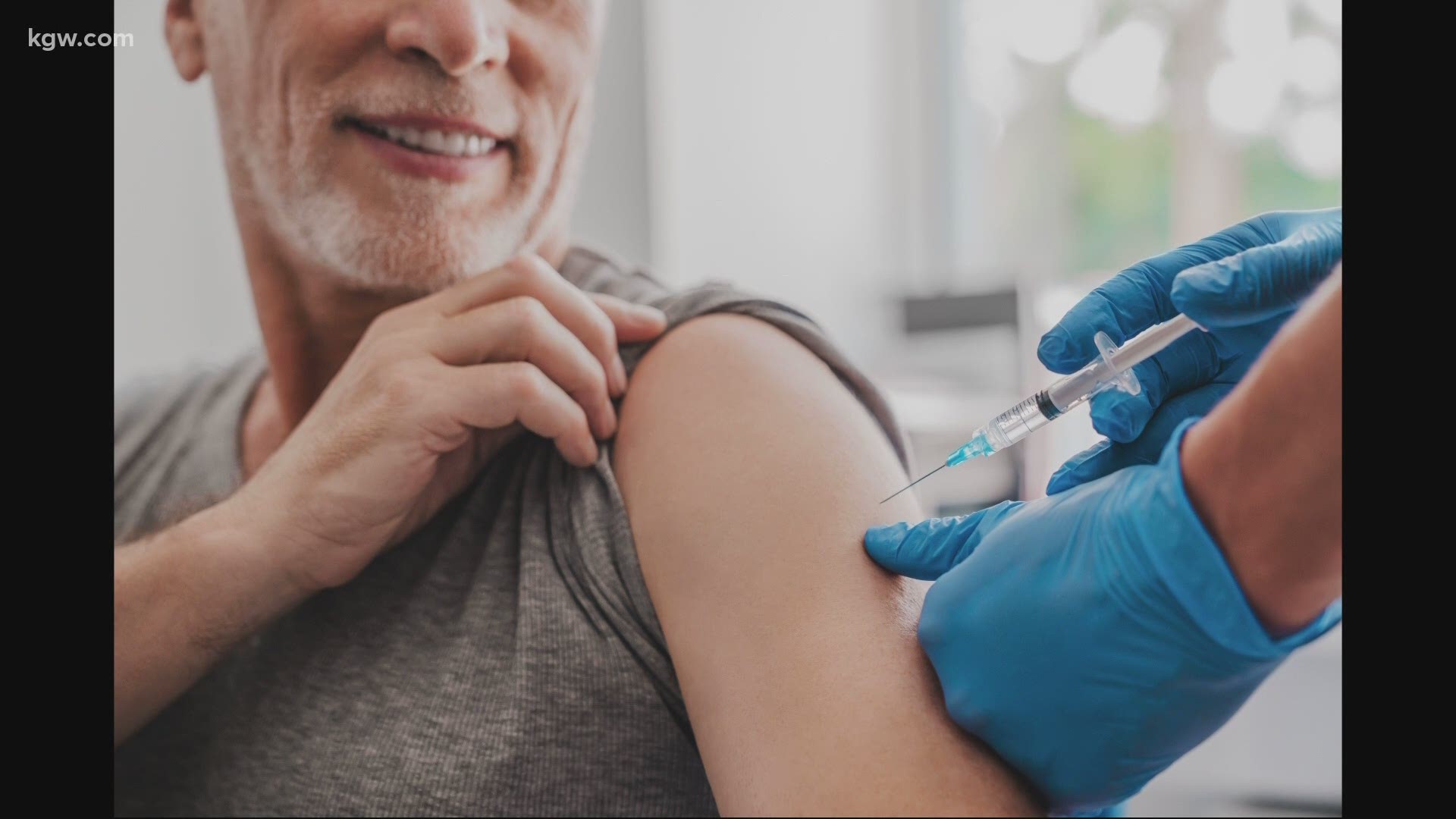PORTLAND, Ore — Days after the first round of doses arrived in Portland and other cities, Oregon hospitals will begin vaccinating healthcare workers, as well as residents and staff at long-term care facilities, against COVID-19 Wednesday.
Once that initial group has been inoculated, though, it’s unclear who will follow. Like those in dozens of other states across the country, officials with the Oregon Health Authority haven’t unveiled their full vaccination plan. They hope to do that in January.
One factor, among many, they’ll have to weigh is age.
Data released this week by the OHA shows Oregonians in their 20s, 30s and 40s account for 54.7% of confirmed COVID infections in Oregon.
Those over the age of 65 make up just 17%. But that second group is more likely to get seriously ill or die from the virus.
So, who’s the priority?
“I do not envy OHA, their job. I would not want that job. I'm glad I don't have to make this decision,” said Bryan Cwik, assistant professor of philosophy and university studies, with a focus on medical ethics and political philosophy, at Portland State University. “There are so many different things to weigh and balance.”
In an interview Tuesday, Cwik pointed out there are reasons to prioritize vaccinating people who aren't the most at risk for COVID.
“For example, let's just take a particular one. Opening schools,” he said. “I mean, school teachers tend to be much younger, although that's, you know, nuanced depends on the location or something like that … And opening schools is not a small goal, especially elementary schools. This is a big deal to have so many kids of that age learning remotely. This has been well discussed. I mean, remote learning doesn't work for everybody.”
He added, while some see high transmission rates among young people as a sign they're behaving recklessly, but that's not necessarily the case.
“Many people are out and about because they have caregiver responsibilities because they have to continue working including in occupations that are public-facing. And so there's a high risk of transmission,” Cwik said. “There's a variety of reasons why somebody might not just sit at home, watching Netflix and put themselves in a situation where they are at risk for the virus.”
All that said, amid this pandemic, there is a big curveball.
Scientists say data shows these vaccines will protect you from getting sick from COVID, but they don't know whether it will prevent you from being a carrier and passing the virus onto other people. That, Cwik points out, could bolster the argument for vaccinating older, more vulnerable people first, since simply vaccinating everyone around them may not give them any protection.
Still, no matter what officials do, some people will be prioritized. Others will be deprioritized. As a result, emotions will inevitably run high.
Cwik just hopes people remember, eventually, everyone's turn will come.
“There's going to be a lot of discussions and a lot of hand-wringing and a lot of Monday morning quarterbacking about the whole process", he said. "But in the end, this is the beginning of the end of the pandemic."

